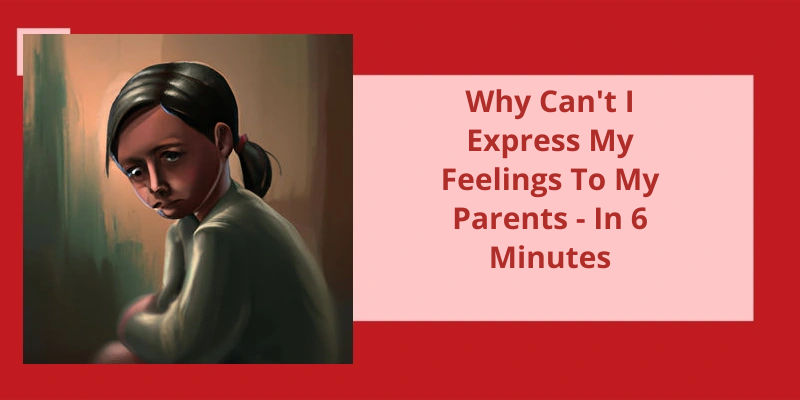In modern society, sexting has become an increasingly common way for individuals to communicate their desires and intentions to their partners. However, while this practice can be seen as a way to strengthen bonds and increase intimacy, it can also lead to complications and misunderstandings. One such issue is when a partner ignores another after engaging in sexting. This behavior isn’t only hurtful but can also cause confusion and frustration. There may be various reasons behind this behavior, including discomfort or guilt associated with sexting or a lack of interest in pursuing the relationship further. Whatever the cause, being ignored after sexting can be a challenging situation that requires sensitivity and clear communication to navigate.
What Should You Do if You Regret Sexting?
Sexting is a very risky activity that should only be done with careful consideration. However, even when you’re careful, sometimes you might send a sext message that you later regret. It can make you feel embarrassed, violated, and even humiliated. If you’ve ever experienced this, know that you aren’t alone. Thousands of people every day find themselves in the same position. However, the question on many peoples minds is, what should you do when you regret sexting?
First and foremost, it’s important to acknowledge your feelings and hurt. Try not to chastise yourself for the decision you made. Instead, approach the situation with a level head and be respectful to yourself and the other person involved. You may feel embarrassed, and thats okay, but you should try to take control of the situation quickly.
One of the first things you could do if you regret sexting is to ask the person to delete your message. It may be tough to approach them directly, but it’s the best thing to do. Explain that you didn’t mean to send the message and apologize for any discomfort you may have caused. Remember, it takes courage to own up to your mistakes, and it shows the other person that you’ve respect for their feelings.
If speaking to the person directly seems too difficult, reach out to someone you trust. A close friend, parent, or counselor can be invaluable in helping you work through the difficult emotions that come with regretting a sext message. They can provide a safe space where you can discuss how you feel and provide supportive advice on what to do next.
Another option is to make a report to your mobile phone company. Many mobile phone companies have policies that prohibit sending or receiving explicit content or messages. If youre receiving unwanted pictures or requests, you can report it to your provider, and they can take appropriate action. Taking this step can’t only prevent future sexting incidents but can also eliminate the risk of bad actors using your image for unsavory activities.
Sexting should always be done with care and consideration. This may involve speaking directly to the person and asking them to delete the message, talking to a trusted friend or counselor, or reporting it to your mobile phone company. Whatever action you choose to take, remember that making mistakes is a part of life, and the most important thing is to take responsibility and learn from them.
Feeling guilty for sexting can be a daunting experience, but there are ways to cope with it. One of the most effective approaches is to avoid the behavior that led to the guilt. However, it’s also essential to address the underlying issues that may have contributed to the behavior. In this case, talking to someone can help ease the burden of guilt and allow you to explore new avenues in your sexuality without the added guilt. Additionally, it’s crucial to remember that sex is a natural human need, and it’s okay to want to explore new things.
How Do I Get Over My Guilt of Sexting?
It’s important to remember that sexting is a personal decision that shouldn’t be made out of pressure or coercion. If you feel guilty about sexting, it may be helpful to examine your motivations and intentions for engaging in this activity. Are you sexting because you genuinely enjoy it, or because you feel like you should? Be honest with yourself about why you’re sexting, and use this information to guide your future decisions.
One way to get over your guilt is to focus on practicing self-compassion. Instead of beating yourself up and dwelling on negative emotions, try to show yourself kindness and understanding. Recognize that everyone makes mistakes, and that guilt is a natural response to feeling like youve done something wrong. Give yourself permission to move on and learn from the experience, and try to avoid making the same mistake in the future.
Sharing your feelings with someone you trust can help you process your emotions and gain a new perspective on the situation. It’s important to choose someone who’ll be supportive and nonjudgmental, so that you feel comfortable opening up and expressing yourself.
If youre struggling with feelings of guilt and shame related to sexting, it may also be helpful to explore your beliefs around sexuality and intimacy. Many people feel ashamed or embarrassed about sexual desires, and may struggle with feelings of guilt when they engage in activities that are seen as taboo or shameful. By examining your beliefs and attitudes towards sex, you can start to understand and address the root causes of your guilt.
Ultimately, getting over your guilt of sexting may require a combination of different strategies and approaches. It’s important to be patient with yourself, and to seek out support and guidance as needed. Remember that you aren’t alone in your struggles, and that there’s no shame in seeking help. With time and effort, it’s possible to move past feelings of guilt and experience greater freedom, fulfillment, and joy in your sexual relationships.
Strategies for Setting Healthy Boundaries in Relationships to Avoid Feeling Pressured Into Sexting
Healthy boundary setting in relationships is crucial to avoid feeling pressured into sexting. Some effective strategies include clearly communicating personal limits and expectations, being assertive when necessary, emphasizing the importance of consent and respect, and avoiding engaging in digital intimacy before establishing trust and mutual understanding with the other person. Additionally, it can be helpful to seek advice from trusted individuals, such as friends or mentors, to gain perspective and support in maintaining these boundaries.
Conclusion
In conclusion, it’s important to understand the gravity of ignoring a person after engaging in intimate text messages or sexting. While it may seem like a casual act, it can have serious emotional repercussions for the person on the receiving end. The feeling of being objectified or used for one's personal gratification can lead to feelings of worthlessness and loneliness. It’s crucial to treat all individuals with respect and empathy, both in online and offline interactions. Ultimately, communication and mutual understanding are key in any relationship, and ignoring someone after sexting is neither respectful nor empathetic. Let’s all strive to create a culture of kindness and respect in all our interactions, both online and offline.






